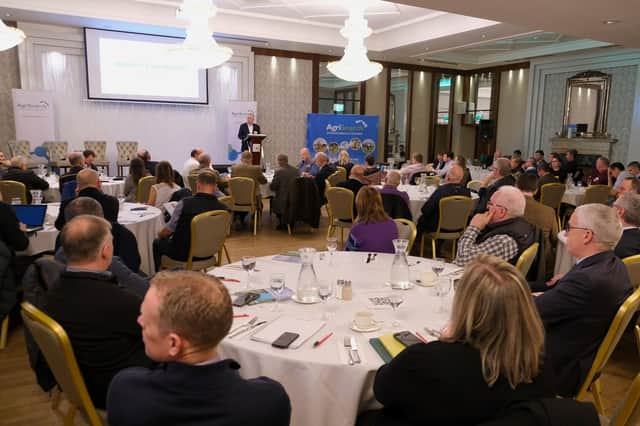The conference sought to articulate the research and innovation needs of farmers and seek a response to those needs from local research providers including AFBI, Queen’s University and Ulster University. In addition, a DAERA perspective on government priorities for the ruminant livestock sector was provided by senior staff.
AgriSearch Chair Professor Gerry Boyle began proceedings highlighting the need for collaboration between all stakeholders to deliver high quality research that can be effectively implemented on farm.
Setting the scene for the conference a video was shared featuring AgriSearch Beacon Network farmers who detailed their experiences of farming in the current climate of increasing environmental pressures, price volatility and challenging weather conditions. They also highlighted the research projects they are currently involved with, the key information generated and the real benefits to their farms.
Farmers voiced their frustration about being portrayed as the villain when it comes to climate change and felt they are part of the solution. On-farm research offered farmers an insight into new technologies and practices which have improved their sustainability credentials while also improving farm resilience. This really emphasised the importance of on farm research and innovation.
Another area stressed was the importance of getting young people motivated to remain within or to join the industry. There is going to be huge demand on farmers to meet future challenges and the industry must encourage the next generation.
This was followed by a panel discussion with questions from the audience. The panel all expressed an open-minded and enthusiastic view on meeting future
challenges, however an underlying uncertainty on future government policy was shared.
Following the panel discussion proceedings moved to the response from Academia and Government which included speakers from Ulster University (UU), Queen’s University Belfast (QUB), Agri-Food & Biosciences Institute (AFBI) and the Department for Agriculture, Environment and Rural Affairs (DAERA).
Professor Phil Jordan (UU) provided an overview of Upland Research and emphasised the importance of peat restoration on drained blanket bog to reduce both carbon emissions and sediment loss. With 25% peat coverage in Northern Ireland there is broad interest from organisations who want to see transformation to deliver for food, farming, society and the environment.
Professor Nigel Scollan (QUB) opened his talk stating that the world needs to meet the challenge of feeding 10 billion people by 2050. Food security is a multi- component deliverable and will require partnerships to be formed with stakeholders from across the supply chain to meet demand within the constraints currently being placed upon the agriculture sector. Professor Scollan also shared the current research being undertaken at QUB which included soil biology, methane reduction and measuring sustainability. He stated that more emphasis should be on circularity when it comes to research and delivering to meet all aspects of food security.
To conclude the academic portion of the event Professor Elizabeth Magowan (AFBI) highlighted the power of data to inform farmers and policy makers to make difficult decisions to help Northern Ireland move toward Net Zero. Professor Magowan reiterated the importance of keeping an open mind about alternative land use options to help decarbonise farms. Professor Magowan emphasized that water pollution is still the biggest item on the agenda when it comes to AFBI’s focus.
Patrick Murphy gave an overview of DAERA research and innovation priorities. He said science and innovation are key components of the agriculture policy framework and that collaboration will be essential to deliver target outcomes; increase productivity, sustainability, resilience and an effective functioning supply chain. He indicated there will be major additional investments in innovative, collaborative and transformative science which included close to £100 million of new investment with AFBI, QUB, UU and AgriSearch.
To conclude the event Dr Sinclair Mayne summarised proceedings and emphasised the importance of focusing on firstly taking advantage of the low hanging fruit. For example, improving genetics through selecting animals based on methane production and age at slaughter could deliver a 25% reduction in methane per kg of
carcass weight. With over 33.4% of slaughtered animals older than 26 months there is a significant opportunity. Dr Mayne also highlight the potential of optimising
ruminant livestock performance through high quality forage diets. This starts with the soil science, improving nutrient management on-farm by using the data delivered by the Soil Nutrient Health Scheme and this is another potential quick win for the industry.
AgriSearch General Manager Jason Rankin launched the organisation’s Research and Innovations Needs Report which can be found in the 2022-23 Annual report which is available on the AgriSearch website. Alongside the farmer video and presentation slides from the event.
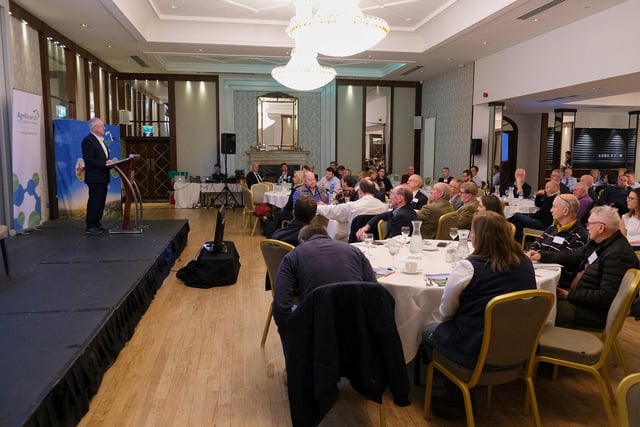
1. (4)Gerry Boyle Welcome.jpg
Prof. Gerry Boyle, Chair, AgriSearch speaking at the AgriSearch Research and Innovation Needs Conference in Antrim. Photograph: Columba O’Hare/ Newry.ie Photo: Columba O'Hare
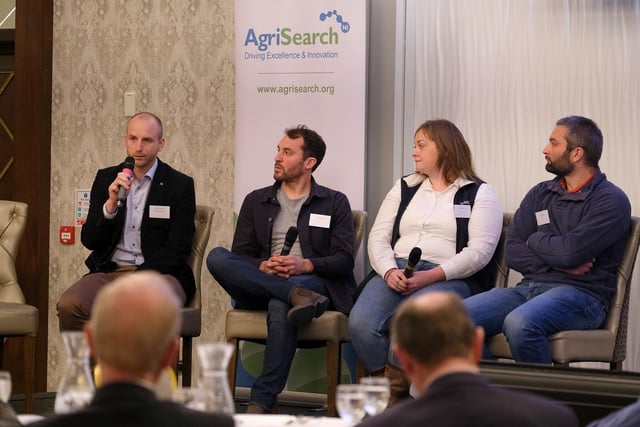
2. (1)Farmer_Panel.jpg
The AgriSearch Beacon Farmer panel at the AgriSearch Research and Innovation Needs Conference in Antrim. Included from left are: Matthew Dobson, Dungannon; David Thompson, Strabane; Samantha McCarroll, Fintona and Jonathan Blair, Ballykelly. Photograph: Columba O’Hare/ Newry.ie Photo: Columba O'Hare
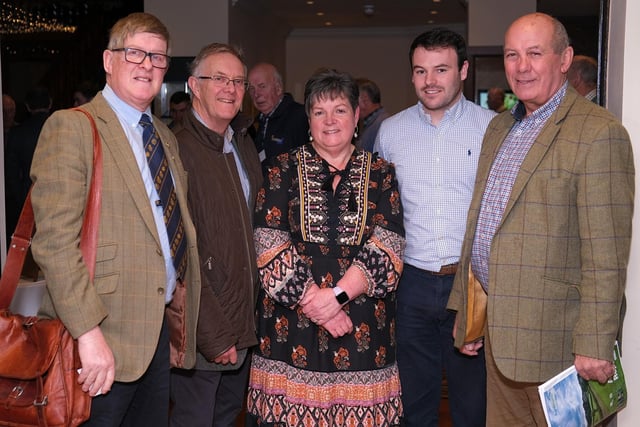
3. Sam Chesney, Trustee, AgriSearch; Ivor Ferguson, Trustee; Louise Skelly, Trustee; Sean Kane, AgriSearch Operations Manager and Crosby Cleland, Trustee pictured at the AgriSearch Research and Innovation Needs Conference in Antrim.
Sam Chesney, Trustee, AgriSearch; Ivor Ferguson, Trustee; Louise Skelly, Trustee; Sean Kane, AgriSearch Operations Manager and Crosby Cleland, Trustee pictured at the AgriSearch Research and Innovation Needs Conference in Antrim. Photo: Columba O'Hare
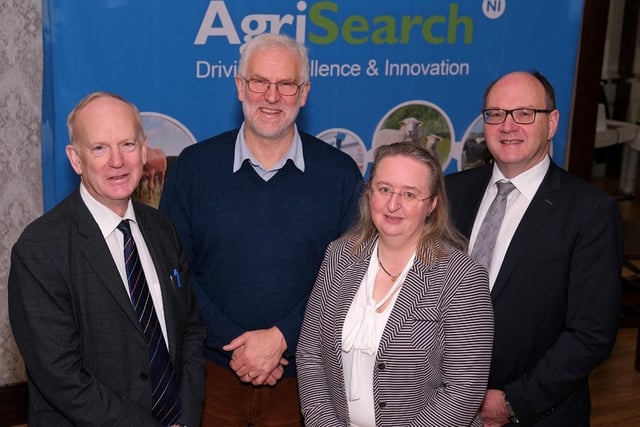
4. (2)Academic_Speakers.jpg
Presenting at the Research and Innovation Needs Conference (l-r): Dr. Sinclair Mayne Independent Scientific Advisor to AgriSearch, Professor Phil Jordan, Ulster University, Professor Elizabeth Magowan, AFBI and Professor Nigal Scollan Queens University Belfast Photo: Columba O'Hare
